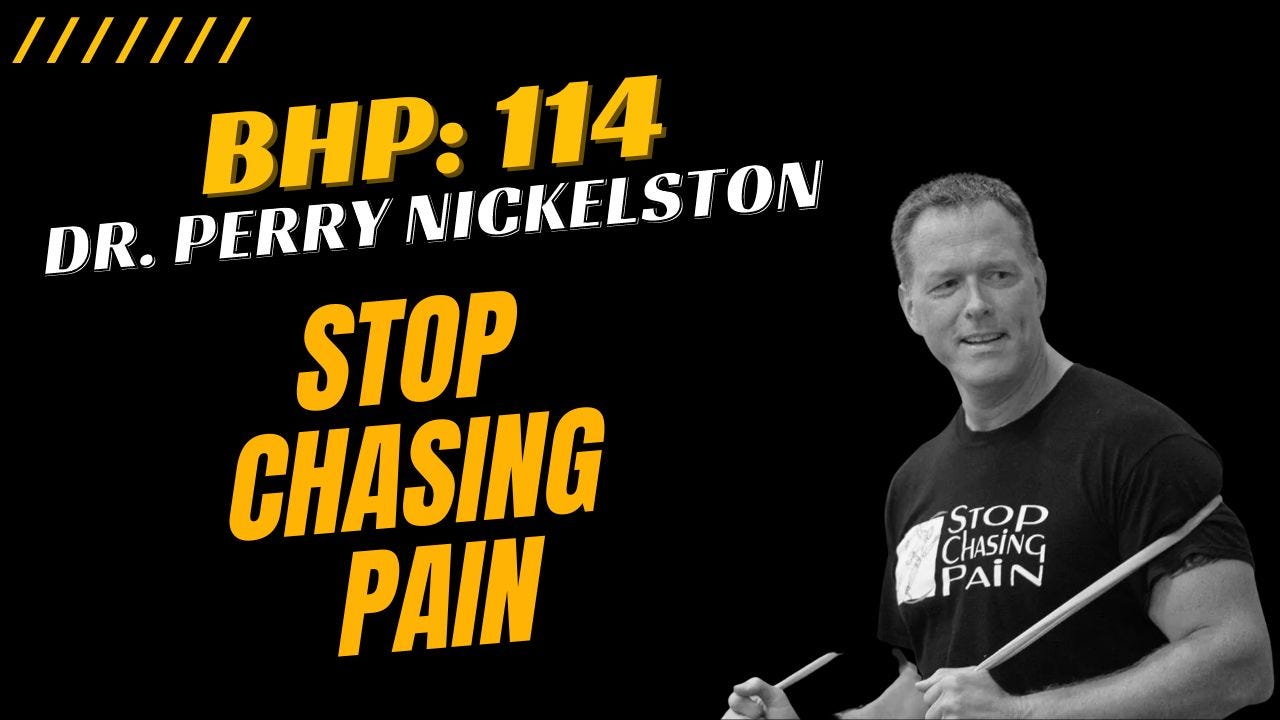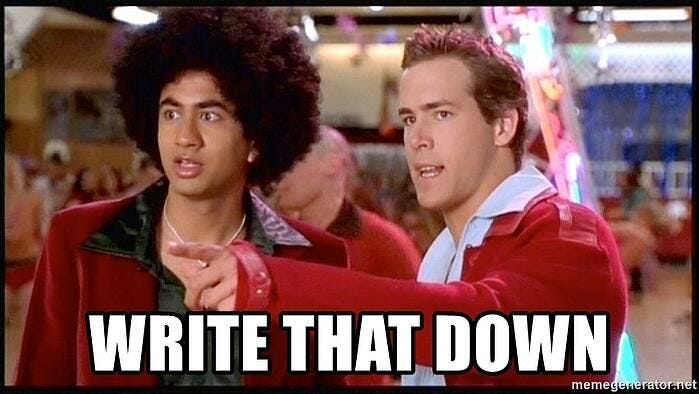One of my favorite accounts to follow on Instagram is Stop Chasing Pain.
The account, run by Dr. Perry Nickelston is filled with useful self care education and information for health, healing, optimal performance, and he posts TONS of actionable little drills to correct posture, ease pain, and help make us better.
A few weeks ago, I asked Dr. Perry to join us on the Better Human Project podcast to share some of his insights and we had an awesome connection.
My big 3 takeaways from that conversation are below.
You can listen to the full interview at any of these links:
If this email was forwarded to you, click the subscribe button for weekly Takeaways from our amazing guests on the Better Human Project.
Pain is Protection, Not Punishment
Talk to any “normal” person and you’ll quickly realize that pain is seen as a punishment - something that happens to us, not something that happens for us.
Maybe you view pain this way as well.
But that’s about to change!
Because pain is not an INPUT, it’s an OUTPUT.
Pain is our body’s way of flashing a dashboard warning light that says:
“Hey bro, something’s not right!”
The squeaky wheel gets the oil.
Or, at least, it SHOULD! If we’re paying attention to self care ;)
Which sort of ties into the psychological & emotional aspect of physical pain - but you’ll have to listen to the full episode for that conversation.
If/when we can shift our perspective to view pain as a protective mechanism that prevents further - more catastrophic injury - we can begin to accept it, back off of the actions that cause it, look for a root cause, and work towards a solution.
Again, this is something we discuss (at length) in the full episode - so be sure to check it out. Dr. Nickelston shares his effectively strategy for determining proper courses of action.
One more thing on pain, that Perry said we should all write down:
Pain is a signal that we’re experiencing low oxygen somewhere in the body.
That should give you a clue as to how we might begin to treat pain properly:
Breathe!
Breath and move (if appropriate) to bring fresh bloodflow to the area as blood delivers nutrients and oxygen critical for optimal performance &/or healing.
We Don’t Learn/Grow When Comfortable
Growth requires adversity
Said another way, when we’re comfortable, at ease, never being challenged, we do not and will not grow.
Let’s face it, life is full of adversity.
Only a fool believes he/she can avoid adversity altogether.
So rather than view our inevitable adversities or hardships as something to run from, choose to see them as opportunities to develop resilience (get back to baseline), grow (exceed baseline), and become better, more capable versions of ourselves.
Adversity both reveals and provides an opportunity to build character.
It’s All Connected
Talk to a typical chiropractor and you might hear that the musculoskeletal system is the end all-be all.
Talk to an endocrinologist and you’re likely to hear that the hormones control everything.
Talk to a third specialist, say, a neurologist, and they might say that nervous system is king.
So which one is right?
Are they all wrong?
Well, what we’re seeing there is bias.
Each practitioner in our example is biased toward their own lens/speciality.
But the truth is, the body and it’s systems do not exist in isolated vacuums.
We can’t treat one without the other:
The skeletal system needs muscles to move
The muscles need the nervous system to direct movement
The nervous system (brain) needs oxygen to function
The respiratory system would cease to operate if the heart stopped pumping blood…
See where this is going?
The idea that the musculoskeletal, nervous, lymphatic, blood, respiratory, et al. systems are operating in isolation is false.
And treating symptoms (pain) in this manner will not result in long term, optimal health or performance.
We need a holistic approach that transcends system-bias. (Oh, and this applies to life, business, sport, and many other things outside of health/medicine.)
One more Bonus in this section:
If you have pain that moves around - or, “ping pongs”, as Perry calls it - that is going to be due to causes that are more systemic & emotional-based.
LISTEN to the full interview:
Keep Moving The Chains,
Munsey




